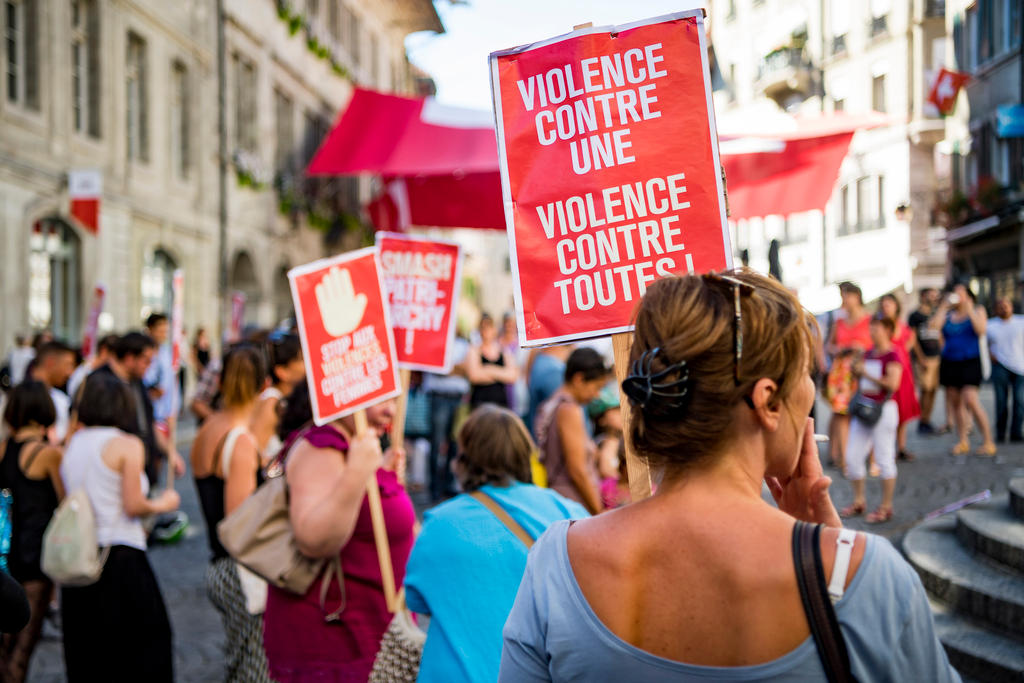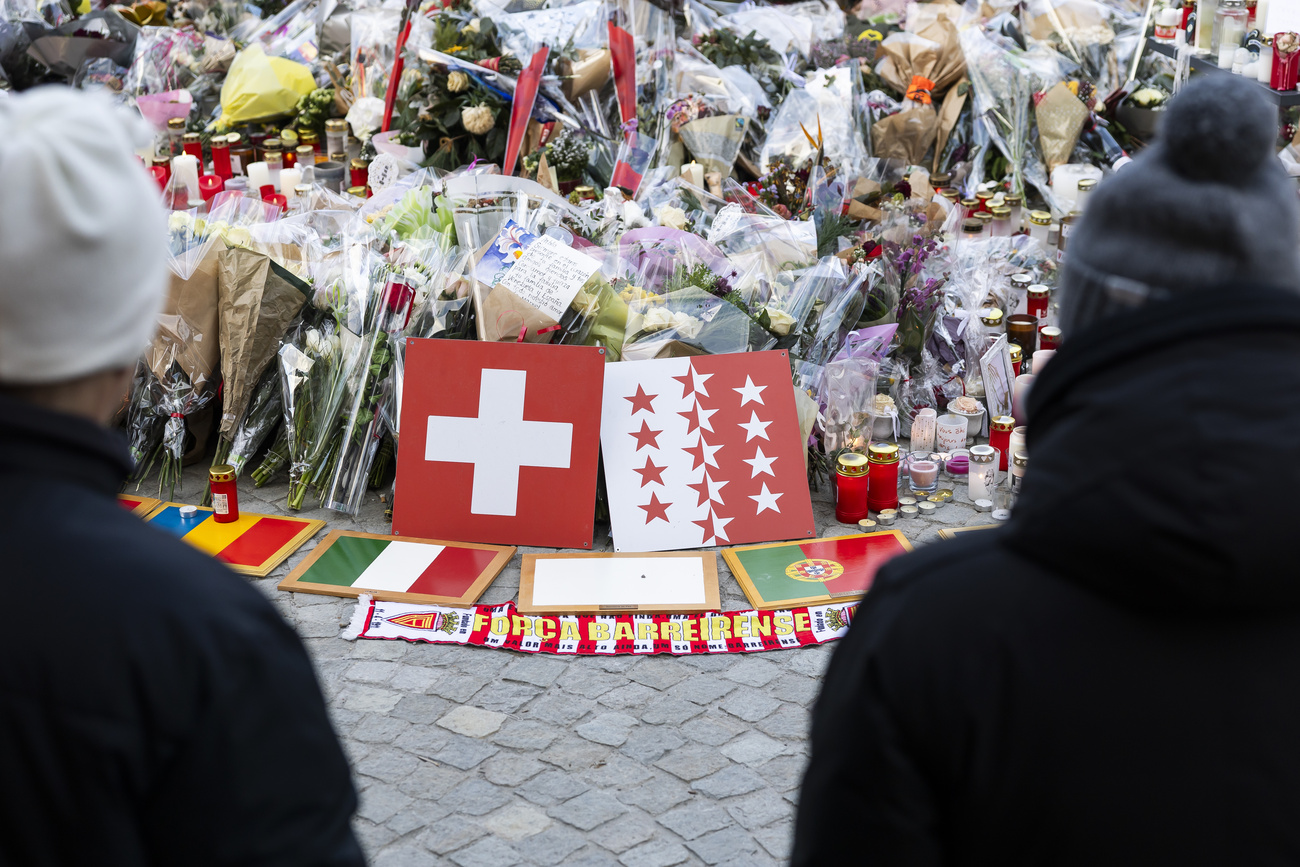
Party calls for more action over violence on women

The women’s branch of a Swiss political party has suggested a five-point plan, including a “no means no” information campaign, following two recent serious attacks on women.
In one of the attacks against a group of five women outside a Geneva nightclub, one woman ended up in a coma. The brutality of this incident is shocking, said Martine Docourt, the co-president of the women’s branch of the leftwing Social Democratic Party, which is Switzerland’s second largest party. This is why measures are needed. Violence is still a daily reality in Switzerland in 2018, she said.
“And there is one consistency: it’s not the social background, or origin, it’s the sex [of the perpetrator]. And that’s male,” Docourt said at a press conference in Bern on FridayExternal link.
She and her colleagues however pointed out that this affected all men, not just those with a migration background. There has been speculation in the media over the origin of the men involved in the Geneva attack. On Tuesday, the Office of the Geneva Attorney General confirmed that they have been identified as French citizens and that the investigation has been handed over to the French justice authorities.
The four other measures mentioned were increasing the advice available to women, boosting women’s shelters and ensuring that equality measures are implemented. In addition, an independent observation centre would gather information and statistics on violence against women, which would be an important step in violence prevention, a statement said.
The attacks
The plan comes after five women aged 22-33 were attacked by a group of men after a night out on August 8. Two of the women suffered serious head injuries, and one ended up in a coma; the latter reportedly came out of the coma on Thursday evening.
In the same week, a mother of two was verbally abused by a group of men on her way home in Zurich. After answering back, she was attacked and needed hospital treatment.
The Sunday after the incidents more than 500 people demonstrated across Switzerland against violence against women. 100 people gathered to protest in Geneva a day after the Geneva attack.
Experts’ view
Overall, statistics showExternal link that the number of recorded violent crimes remains stable in Switzerland. For example; in 2016 there were almost 43,000 cases of reported violent crime of all kinds; in 2017 it was just under 42,000.
Experts say that attacks like those in Zurich and Geneva are still relatively rare in Switzerland.
“We don’t feel that cases have been on the rise over the years. There are always ups and down, with isolated serious incidents like the ones in Zurich and Geneva. These get a lot of media attention and become public,” Corina Elmer, head of the Women’s Advice Centre for Sexual ViolenceExternal link in Zurich told Swiss public television SRFExternal link.
Josef SachsExternal link, a forensic psychiatrist who has worked for many years in the fields of violence and crime, agrees. But he said that the issue should be taken seriously.
“Most of these types of violent crimes are under the threshold for being reported to the police. These are verbal abuse, groping but also threats and coercion,” Sach explained to SRF.
There a no statistics for these kinds of crimes, as not everyone goes to the police, but Sachs thinks there is a large number of unreported cases. Many take place in summer, when people are out a lot and there are big events like concerts.
Lack of respect
This impression is shared by Johanna Bundi Ryser, head of the Swiss Police Officers’ AssociationExternal link. She said there seems to be less respect shown toward women on nights out in particular. Women who reject young men’s advances are called names or have their hair pulled, she said. These are not harmless cases, she told SRF.
The experts welcomed the discussion over the Zurich and Geneva cases as a signal that society was not prepared to accept violence against women. Sachs said this increased the pressure on society politicians and the police to take action.

More
Demonstrators condemn violence against women

In compliance with the JTI standards
More: SWI swissinfo.ch certified by the Journalism Trust Initiative






























You can find an overview of ongoing debates with our journalists here . Please join us!
If you want to start a conversation about a topic raised in this article or want to report factual errors, email us at english@swissinfo.ch.